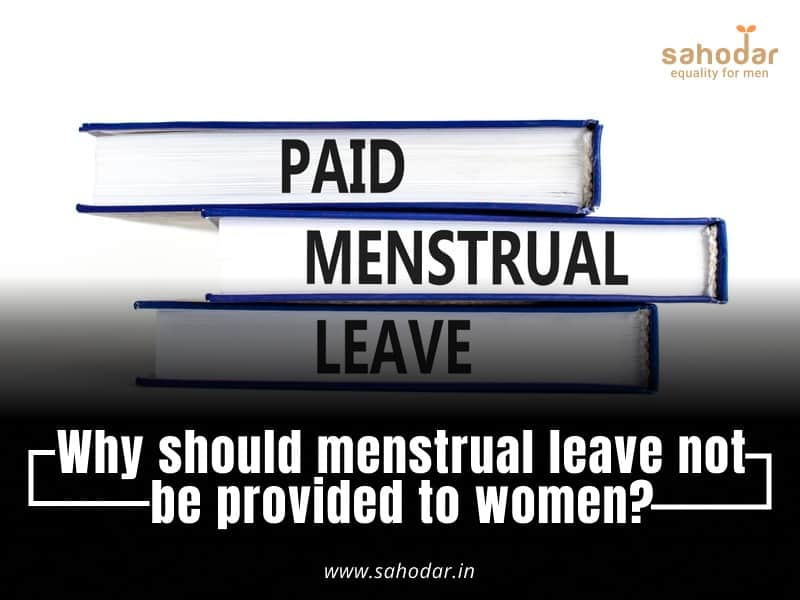Recently, a PIL was filed in the Supreme Court of India to direct states to provide menstrual leave to women. Though it was dismissed as the court directed the petitioner to approach the government, it being a policy issue.
In another such instance,pain became the first European country to provide 3-5 days of menstrual leave to women.
If we go by the precedents, Kerala and Bihar already provide menstrual pain leaves to women. More so, the government of Kerala went a step ahead to offer menstrual leave to the female students. Menstrual leave is already being provided in Japan, Indonesia, South Korea, Taiwan, and Zambia. Even certain corporate entities in India, like Swiggy, Zomato, and Byju provide such leaves to their female employees.
But the question is, is this leave justified? Won’t the menstrual leave harm the work culture and overburden the organisations? Can companies sustain after the coming into force of such provisions? How will the organisations bear the cost associated with such leave? And how much of the taxpayer’s money will go in vain?
The feminazis argue that a woman undergoes a number of physical and mental hardships when she bleeds. But if we look at it scientifically, it is a symbol of good health for a woman instead. Moreover, not all females undergo menstrual pain. For most of them, it is not a painful process.
The organisations may stop hiring female employees as productivity of the organisation will suffer a setback. Organisations grow due to the equal contribution of male and female employees. There may be dissent among male colleagues, and this may lead to huge losses or spoil the work culture of the organisation. It may also inculcate a tendency in the female employees to take unfair advantage of this provision when implemented.
Additionally, the financial costs will have the hiring bias among the employers as they will refrain from someone who has to be paid without work. This will remarkably reduce the female labour force and will lead to discriminatory hiring.
If we see internationally, Spain’s ministers are thumping their chests as being women’s rights advocates. Under their policy, women who experience severe cramps or other such symptoms are granted leave. However, the determination of the condition is ambiguous in itself. What will determine a severe cramp or grievous pain that requires days off? Will the words of the woman suffice to determine if she is suffering from such an issue?
And a step ahead though in the wrong direction, the Kerala government, being blind to gain fame and to pretend itself as the champion of the cause of women, has made provisions for menstrual leave for even the female students. It led us to wonder if they are helping or spoiling the future of the country. A girl with less attendance will learn less and studying less will definitely impact her result. It will create an adverse impact on her future prospects. So-called feminists doing more harm than good for the girls.
Further, since she will get in the habit of getting concessions from an early age, she will lack the fighting spirit to move ahead in life.
There is a high ambiguity in the implementation of the menstrual pain leave provision itself. Like, if we see country wise,there is a huge ambiguity in the number of leaves granted to the women employees. Women in Japan are entitled to 1-3 days’ leave, in South Korea they have menstrual pain leave for a day only, in Indonesia, it is for 2 days only in the entire month.
Even in India, we have variances in the number of days the leave is granted. In Kerala, it is a 1 day’s leave whereas, in Bihar, the government has granted 2 days of menstrual leave.
Most importantly, the grounds of determination of the menstrual pain lack substance. Is there any parameter to measure the pain?
There is a clear lack of an appropriate definition of “pain.”
Women in India love to victimise themselves and are champions at misusing the gender biassed laws. Surely they will take advantage of this provision too. The corporate world is already scared of the POSH which is time and again misused by the female employees for personal vendetta.
It is tough to ascertain the symptoms as it varies from female to female. The issue cannot be generalised. The provision of menstrual leave may create gender stereotypes and result in discrimination against female employees. This may induce gender biases and deprive women of equal opportunities and future promotions. It will be very difficult for a woman to get hired because of her biological conditions.
The menstrual pain leave is more about the gendering of the workplace. It is just a normal biological process that is being medicalized.
This by any chance, cannot be branded as a progressive step. It is rather a regressive move, mere tokenism. A woman will be considered more weak than ever if such a policy is brought into existence. It will create the #metoo sort of controversy. It will do more harm than good to the women.

